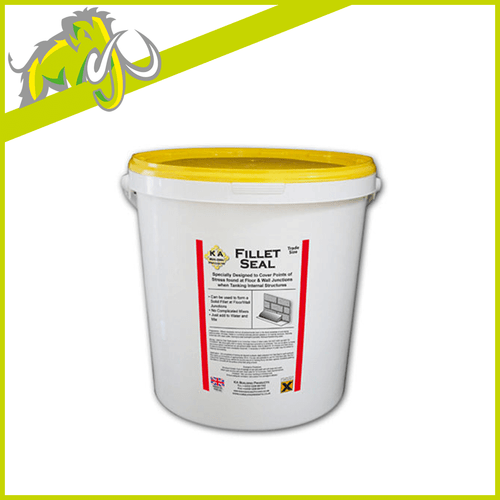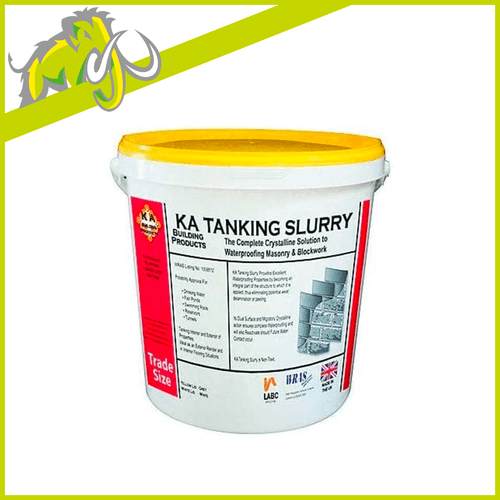20 x 25kg Buckets KA Fillet Seal
Fillet Seal from Kenyon Agencies Ltd (KA) is especially formulated to strengthen the weak points in block work and masonry during waterproofing - especially using KA Tanking Slurry. It is used in most occasions when a floor meets a wall or corners.
When to use Fillet Seal
It can be used in nearly every occasion where the floor meets walls and corners when a join may be weak and lead to waterproofing problems in the future.
It is recommended to use as an aid to strengthen the stress points that can occur in stonework waterproofing.
Easy to use
Simply add 4 litres of clean water to each 25kg bucket of KA Fillet Seal
How it works
The Fillet Seal acts with water and free lime that is present in the substrate to react with the active chemicals in KA Fillet Seal. This quickly forms and develops a continuous barrier of insoluble crystals that penetrate deep into the fabric of your wall and floor. The active ingredients in KA Fillet Seal will not delaminate, peel off or wear away. The permanent waterproofing properties become an integral part of the structure, protecting your floors and walls from water-borne corrosive elements.
After application
Once the fillet has set, the active chemicals remain dormant until any subsequent contact with water reactivates the sealing process.
Setting rate and penetration
The speed and depth that the crystalline development that will be will achieved varies with the density and surface absorption of the material you are applying it to. Sufficient surface penetration will provide full waterproofing after between five and seven days.
Composition
Fillet Seal is made from specially prepared quartz, Portland cement, and a blend of organic and inorganic chemicals.









